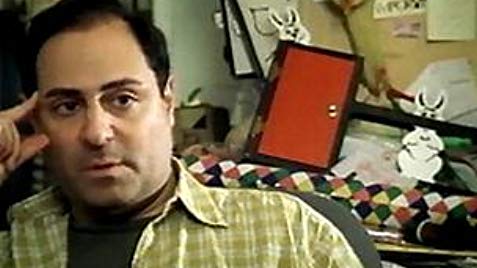Currently available via HBO Go/HBO Now.
Director Andrew Jarecki’s ambiguous and sometimes skin-crawling dive into the Friedman case is a great, controversial true crime documentary. Jarecki’s ostensible subject is the long litany of child molestation accusations against Arnold Friedman and his son Jesse, and that topic eventually proves to be a sordid and uncomfortable entry-point to a whole host of others: the aggressive claustrophobia of the Friedman family, the depths of denial, the legal and moral quagmires of eighties Satanic Panic, and guilt and innocence more generally. It’s a lot to take on, but the documentary manages it well–it’s layered rather than long, and those layers give it an appealing density and a lot of different angles.
Arnold Friedman admits to incidents of child molestation, just not the ones detailed in the film, and he admits to possessing a stash of child pornography–the presence of which would be seemingly irrefutable. His loyal sons, however, manage to completely ignore the latter as if willing it out of their minds, and manage to deliberately misunderstand the former: “I don’t even know what that means,” David Friedman claims before sputtering out a series of bizarrely innocent interpretations. It’s hard to get at the truth, and Jarecki is cognizant of that, but sometimes it’s even harder not to. Capturing the Friedmans features a lot of people doing their best to not get at the truth.
But sometimes it’s impossible to know what they should be trying to get at in the first place. Friedman is a confessed pedophile and those inclinations didn’t leave him; Jesse admitted to his involvement in the crimes (at first to secure a plea bargain and later, though not covered in this documentary, for other reasons, and very publicly). But Jarecki believed in Jesse’s innocence and supported his appeal, and there are reasons for that. A detective admits on camera to boxing children into statements–his approach was to tell them what he already “knew” and then get them to confirm it, ignoring the fact that, as another detective points out, children want to please the adults that they’re talking to. One man named in the case, now an adult, gives details of the abuse that feel hyperbolic and lurid in a way common to the fictional mass-abuse cases of the eighties; he believes he recovered these memories through hypnosis. There’s a lot to wonder about here, and plenty to be made uncomfortable by.
The end result is a painterly and somewhat queasy look at truly toxic circumstances. One way or another, this is family gone wrong and society gone wrong, with the two problems inseparably bolstering each other. “Capturing” is probably accurate–I certainly wind up feeling, here, like there’s no way out.


